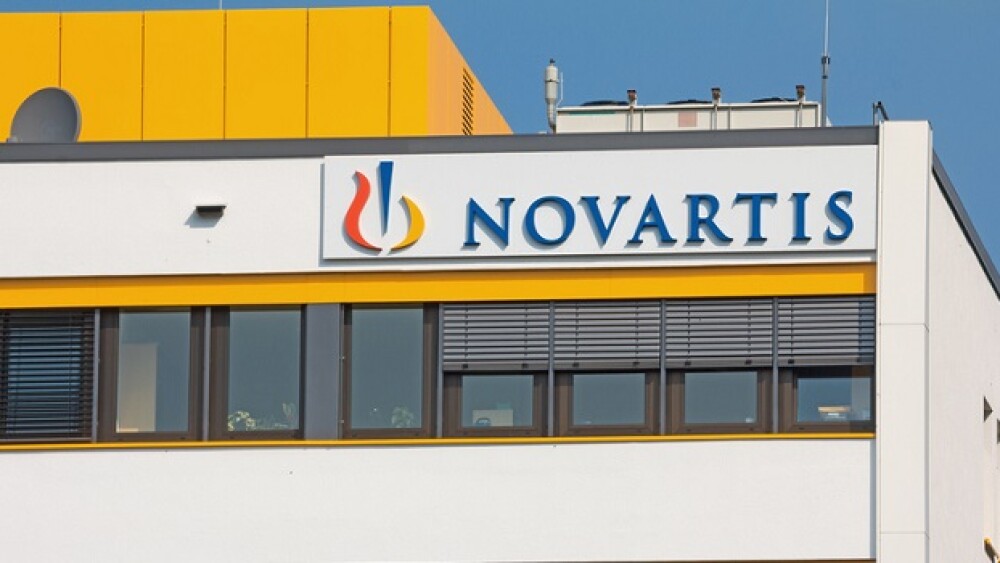The Phase III STAND trial found no significant therapeutic benefit to Novartis’ Adakveo, pushing the European Commission to revoke its conditional authorization of the SCD treatment.
Pictured: Novartis sign at its office in Germany/iStock, TBE
The European Commission has formally revoked its conditional marketing authorization for Novartis’ sickle cell disease therapy Adakveo (crizanlizumab), the Swiss pharma company announced Friday.
The decision comes after the Committee on Medicinal Products for Human Use (CHMP) recommended in May 2023 to pull the approval following a review of additional Phase III data. The EC’s decision is legally binding, forcing Novartis to withdraw Adakveo from all 27 territories covered by the Commission, including Germany, Sweden and Spain, as well as Iceland, Norway and Liechtenstein, which are part of the European Economic Area.
Patients in these territories should discuss alternative treatment options with their doctors and healthcare providers, Novartis said in its announcement.
Adakveo is a humanized IgG2 monoclonal antibody that works by binding to the cell adhesion molecule P-selectin, which is found on the surface of platelets and blood vessel endothelium, while disrupting its interaction with its corresponding ligands. In turn, this mechanism of action allows Adakveo to prevent vaso-occlusion in sickle cell disease (SCD).
The FDA approved Adakveo in November 2019 as a treatment to lower the frequency of vaso-occlusive crises in SCD patients aged 16 years and above. Nearly a year later, in October 2020, the European Medicines Agency signed off on a conditional approval for the SCD therapeutic and its conversion to standard authorization was contingent on further evidence to validate the efficacy and safety of the product.
Novartis ran the Phase III STAND trial to support Adakveo’s full approval in the EU, but in January of this year the company reported that the late-stage study was unable to replicate previous efficacy findings. A preliminary analysis of STAND showed that Adakveo was unable to significantly distinguish itself from placebo in terms of lowering the annualized rates of vaso-occlusive events in SCD patients.
The CHMP flagged this and launched its own review of Adakveo, confirming in May 2023 that Novartis’ treatment “did not reduce the number of painful crises leading to a healthcare visit” as compared with placebo.
The European regulator also looked at past studies of Adakveo, a managed access program and real-world performance data, noting that these studies “had several limitations, such as the lack of a comparator, and could not be used to show the effect of Adakveo or counterbalance the negative results of the STAND study.”
Despite the lack of significant evidence of therapeutic benefit, Novartis pointed out that STAND did not document new safety concerns with Adakveo, and its adverse event profile remains consistent with what had been established in prior trials.
Still, the CHMP noted that STAND “showed a higher rate of severe and serious treatment-related side effects,” therefore concluding that Adakveo’s benefits do not outweigh its risks.
Tristan Manalac is an independent science writer based in Metro Manila, Philippines. He can be reached at tristan@tristanmanalac.com or tristan.manalac@biospace.com.






